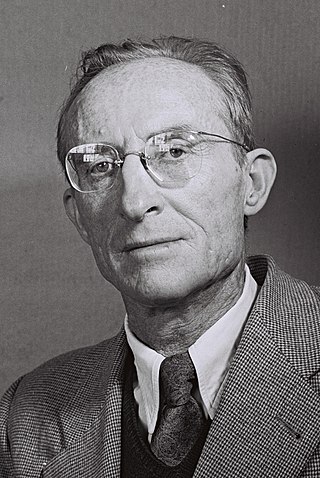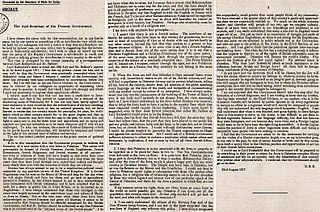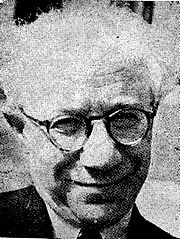
Zionism is a nationalist movement that emerged in Europe in the late 19th century aiming for the establishment of a homeland for the Jewish people, particularly in Palestine, a region roughly corresponding to the Land of Israel in Jewish tradition. Following the establishment of the State of Israel, Zionism became an ideology that supports the development and protection of Israel as a Jewish state. It has also been described as Israel's national or state ideology.

Revisionist Zionism is a form of Zionism characterized by territorial maximalism. Revisionist Zionism promoted expansionism and the establishment of a Jewish majority on both sides of the Jordan River.

Anarchists Against the Wall (AAtW), sometimes called "Anarchists Against Fences" or "Jews Against Ghettos", was a direct action group composed of Israeli anarchists and anti-authoritarians who opposed the construction of the Israeli West Bank barrier.
Anarchists have traditionally been skeptical of or vehemently opposed to organized religion. Nevertheless, some anarchists have provided religious interpretations and approaches to anarchism, including the idea that the glorification of the state is a form of sinful idolatry.

Uri Zvi Greenberg was an Israeli poet, journalist and politician who wrote in Yiddish and Hebrew.
Jewish political movements refer to the organized efforts of Jews to build their own political parties or otherwise represent their interest in politics outside the Jewish community. From the time of the siege of Jerusalem by the Romans to the foundation of Israel the Jewish people had no territory, and, until the 19th century they by-and-large were also denied equal rights in the countries in which they lived. Thus, until the 19th century effort for the emancipation of the Jews, almost all Jewish political struggles were internal, and dealt primarily with either religious issues or issues of a particular Jewish community.

José Peirats Valls (1908–1989) was a Spanish anarchist, activist, journalist and historian.

Anti-Zionism is opposition to Zionism. Although anti-Zionism is a heterogeneous phenomenon, all its proponents agree that the creation of the modern State of Israel, and the movement to create a sovereign Jewish state in the region of Palestine—a region partly coinciding with the biblical Land of Israel—was flawed or unjust in some way.
Revisionist Maximalism was a short-lived right-wing militant political ideology and Jewish militant ideology which was part of the Brit HaBirionim faction of the Zionist Revisionist Movement (ZRM) created by Abba Ahimeir.
This timeline of anti-Zionism chronicles the history of anti-Zionism, including events in the history of anti-Zionist thought.

The Jewish left consists of Jews who identify with, or support, left-wing or left-liberal causes, consciously as Jews, either as individuals or through organizations. There is no one organization or movement which constitutes the Jewish left, however. Jews have been major forces in the history of the labor movement, the settlement house movement, the women's rights movement, anti-racist and anti-colonialist work, and anti-fascist and anti-capitalist organizations of many forms in Europe, the United States, Australia, Algeria, Iraq, Ethiopia, South Africa, and modern-day Israel. Jews have a history of involvement in anarchism, socialism, Marxism, and Western liberalism. Although the expression "on the left" covers a range of politics, many well-known figures "on the left" have been of Jews who were born into Jewish families and have various degrees of connection to Jewish communities, Jewish culture, Jewish tradition, or the Jewish religion in its many variants.
Labor Zionism or socialist Zionism refers to the left-wing, socialist variation of Zionism. For many years, it was the most significant tendency among Zionists and Zionist organizations, and was seen as the Zionist sector of the historic Jewish labour movements of Eastern Europe and Central Europe, eventually developing local units in most countries with sizable Jewish populations. Unlike the "political Zionist" tendency founded by Theodor Herzl and advocated by Chaim Weizmann, Labor Zionists did not believe that a Jewish state would be created by simply appealing to the international community or to powerful nations such as the United Kingdom, Germany, or the former Ottoman Empire. Rather, they believed that a Jewish state could only be created through the efforts of the Jewish working class making aliyah to the Land of Israel and raising a country through the creation of a Labor Jewish society with rural kibbutzim and moshavim, and an urban Jewish Proletariat.
Uriel "Uri" Davis is an academic and civil rights activist. Davis has served as Vice-Chairman of the Israeli League for Human and Civil Rights and as lecturer in Peace Studies at the University of Bradford. Davis describes himself as "a Palestinian Hebrew national of Jewish origin, anti-Zionist, registered as Muslim and a citizen of an apartheid state - the State of Israel." A member of Fatah since 1984, he was elected to the Revolutionary Council for the Palestinian party in 2009.

Abba Lvovich Gordin (1887–1964) was an Israeli anarchist and Yiddish writer and poet.

Freie Arbeiter Stimme was a Yiddish-language anarchist newspaper published from New York City's Lower East Side between 1890 and 1977. It was among the world's longest running anarchist journals, and the primary organ of the Jewish anarchist movement in the United States; at the time that it ceased publication it was the world's oldest Yiddish newspaper. Historian of anarchism Paul Avrich described the paper as playing a vital role in Jewish–American labor history and upholding a high literary standard, having published the most lauded writers and poets in Yiddish radicalism. The paper's editors were major figures in the Jewish–American anarchist movement: David Edelstadt, Saul Yanovsky, Joseph Cohen, Hillel Solotaroff, Roman Lewis, and Moshe Katz.

Zionism has been described as a form of settler colonialism in relation to the region of Palestine and the Israeli–Palestinian conflict. Many of the fathers of Zionism themselves described it as colonialism, such as Vladimir Jabotinsky, who said "Zionism is a colonization adventure."
Anti-Yiddish sentiment is a negative attitude towards Yiddish. Opposition to Yiddish may be motivated by antisemitism. Jewish opposition to Yiddish has often come from advocates of the Haskalah, Hebraists, Zionists, and assimilationists.













